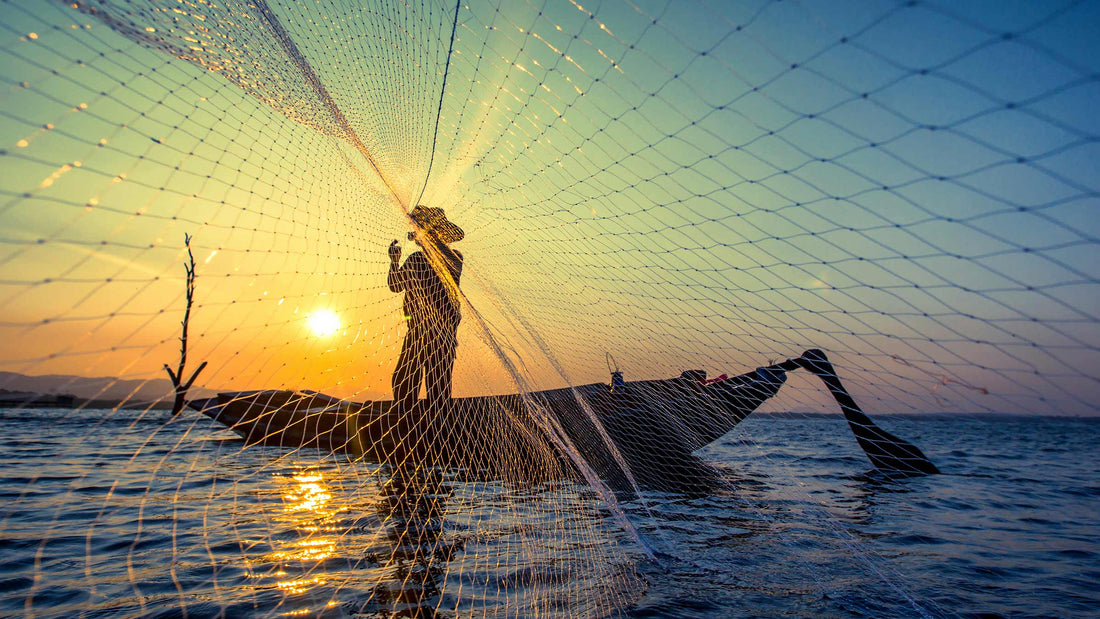
Protect Marine Life and Oceans with Sustainable Fishing Practices
Six KnotsShare
Millions of people all around the world have long enjoyed the delightful activity of fishing. However, it is crucial to keep in mind that fishing also has a substantial impact on our natural waterways and the wildlife that inhabits them. Adopting sustainable fishing methods is essential for ensuring that fishing continues to be viable and for protecting our rivers for future generations.
Sustainable fishing starts with understanding and adhering to the regulations and limits set in place by local, state, and federal laws. These regulations are put in place to protect certain species and to maintain healthy fish populations, and by understanding and following them, we can help ensure that fishing remains sustainable.
One of the most impactful ways to practice sustainable fishing is through the adoption of a catch and release approach. This involves removing the hook from the fish and returning it to the water as quickly as possible to reduce stress and increase its chances of survival. This approach helps maintain healthy fish populations and preserve the balance of the ecosystem.
In addition to catch and release, the use of proper fishing gear and techniques is also crucial for sustainable fishing. For example, using circle hooks instead of traditional J-hooks can reduce the number of fish that are hooked in the gut, increasing their chances of survival. Furthermore, using barbless hooks and avoiding the use of live bait can reduce the impact of fishing on fish populations and the ecosystem.
Ultimately, sustainable fishing is a shared responsibility, and it is important to educate others on the importance of adopting sustainable practices. By sharing our knowledge and passion for fishing, we can inspire others to adopt sustainable fishing techniques and work together to conserve our waterways. This education can be through word of mouth, fishing workshops, or even participating in local events that focus on conservation. By educating the next generation, we can create a future where fishing remains a sustainable and cherished activity for many years to come.
Fishing is a fantastic activity that fosters community and offers countless chances for adventure. But it's crucial to keep in mind that fishing affects our natural waterways as well. We can ensure that fishing is a beloved and sustainable sport for future generations by embracing sustainable fishing practices and teaching others. This will allow them to appreciate the beauty and thrill of capturing a fish as well as the calm that comes with being on the water.
Sustainable fishing starts with understanding and adhering to the regulations and limits set in place by local, state, and federal laws. These regulations are put in place to protect certain species and to maintain healthy fish populations, and by understanding and following them, we can help ensure that fishing remains sustainable.
One of the most impactful ways to practice sustainable fishing is through the adoption of a catch and release approach. This involves removing the hook from the fish and returning it to the water as quickly as possible to reduce stress and increase its chances of survival. This approach helps maintain healthy fish populations and preserve the balance of the ecosystem.
In addition to catch and release, the use of proper fishing gear and techniques is also crucial for sustainable fishing. For example, using circle hooks instead of traditional J-hooks can reduce the number of fish that are hooked in the gut, increasing their chances of survival. Furthermore, using barbless hooks and avoiding the use of live bait can reduce the impact of fishing on fish populations and the ecosystem.
Ultimately, sustainable fishing is a shared responsibility, and it is important to educate others on the importance of adopting sustainable practices. By sharing our knowledge and passion for fishing, we can inspire others to adopt sustainable fishing techniques and work together to conserve our waterways. This education can be through word of mouth, fishing workshops, or even participating in local events that focus on conservation. By educating the next generation, we can create a future where fishing remains a sustainable and cherished activity for many years to come.
Fishing is a fantastic activity that fosters community and offers countless chances for adventure. But it's crucial to keep in mind that fishing affects our natural waterways as well. We can ensure that fishing is a beloved and sustainable sport for future generations by embracing sustainable fishing practices and teaching others. This will allow them to appreciate the beauty and thrill of capturing a fish as well as the calm that comes with being on the water.
